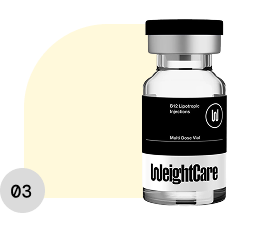Introduction
If you're struggling with obesity and considering your options, it's important to understand the differences between weight loss medications and weight loss surgery (also known as bariatric surgery). Both can be effective tools, but they carry different risks, benefits, and suitability criteria. Let's break down the key factors to help you make an informed decision.
What are Weight Loss Medications?
- How they work: Prescription weight loss medications work in various ways. Some suppress appetite, others increase your metabolism, or make you feel full sooner. They're usually used in combination with lifestyle changes like diet and exercise.
- Effectiveness: Weight loss medications can help people lose a significant amount of weight (5-15% of body weight on average). Results vary depending on the medication and individual response.
- Pros: Less invasive than surgery, no hospital stays, reversible if you stop taking them.
- Cons: Potential side effects, weight regain is common if medication is stopped, requires ongoing commitment.
What is Weight Loss Surgery?
- How it works: Bariatric surgery involves altering your digestive system to restrict the amount of food you can eat or how your body absorbs nutrients. There are different types of procedures (gastric sleeve, gastric bypass, etc.).
- Effectiveness: Surgery generally leads to more significant weight loss (up to 30% of body weight or more in some cases). Results can be long-lasting.
- Pros: Can improve or resolve obesity-related health conditions like diabetes and high blood pressure.
- Cons: More invasive with potential serious risks, requires significant lifestyle adjustments, generally irreversible.
Factors to Consider
- Your BMI: Weight loss surgery is usually recommended for people with a BMI of 40 or above, or a BMI of 35 or above with related health problems. Medications can be used for a wider BMI range.
- Health conditions: If you have obesity-related health issues, surgery might offer greater benefits.
- Expectations: Surgery results in faster, more dramatic weight loss. Medications require patience and ongoing effort.
- Commitment: Both pathways require major lifestyle changes. Surgery demands even stricter adherence to diet and supplementation.
The Importance of Professional Consultation
Ultimately, the best choice for you depends on your individual circumstances and goals. Discussing both options in detail with a healthcare professional specializing in weight loss is crucial. They can assess your health, explain the risks and benefits, and guide you towards the most suitable path.
Conclusion
Whether you choose weight loss medication, surgery, or a combination of approaches, remember that successful weight management is a long-term journey. A qualified professional can help you create a personalized plan and provide the support you need to achieve your health goals.
Disclaimer: This blog post is for informational purposes only and does not substitute for professional medical advice.



